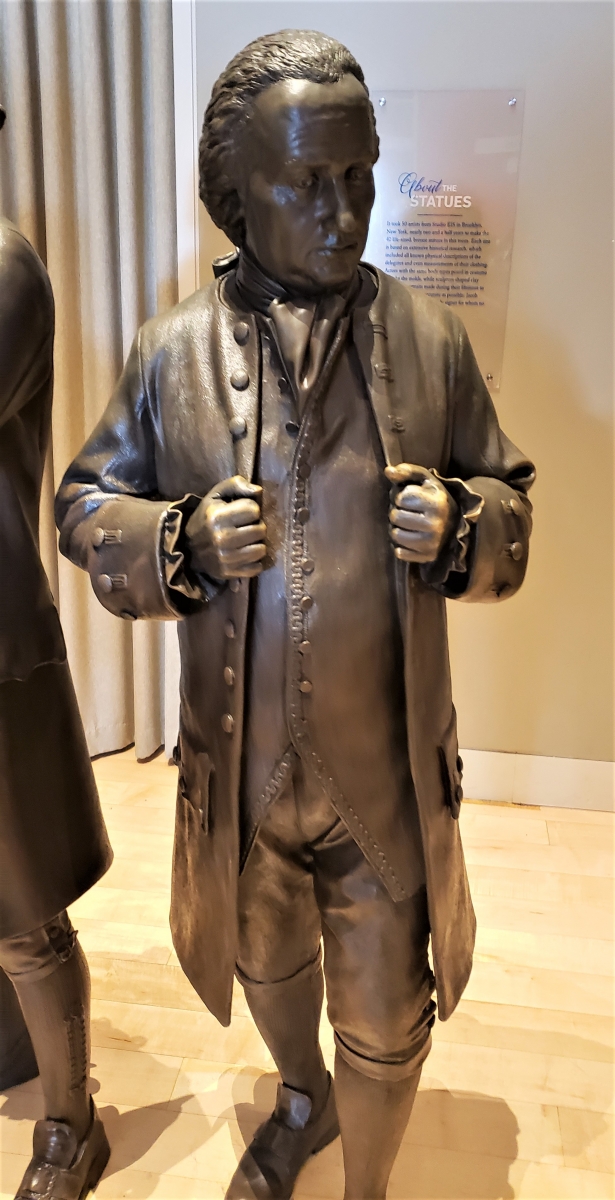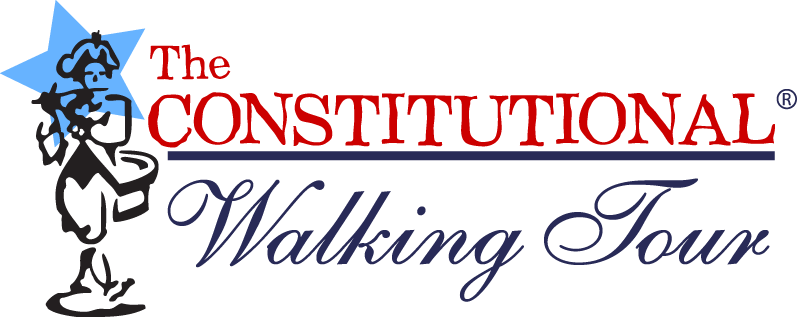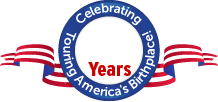Related Posts
- Buy Tickets for The Constitutional Walking Tour of Philadelphia – See 20+ Sites on a Primary Overview of Independence Park, including the Liberty Bell and Independence Hall
- Independence Hall
- Constitutional Convention
Birth: December 11, 1725
Death: October 7, 1792 (age 66)
Colony: Virginia
Occupation: Plantation Owner, Politician
Significance: Primary Author of the Virginia Declaration of Rights (1776); attended the Constitutional Convention but refused to sign the United States Constitution on the basis of a lack of a Bill of Rights (1787); and known as the Father of the Bill of Rights

George Mason was one of the Founding Fathers of the United States. Born in Virginia to a prominent family, Mason was privately tutored and had the finest education in the American Colonies that money could buy. His father died during his childhood, so Mason, as the eldest son, received his Father's estate when he came of age. The estate consisted of thousands of acres of land and hundreds of slaves, making Mason one of Virginia's largest land owners and also one of Virginia's largest slave holders.
Mason managed his family's enormous estate and began serving on the County Court and within the local government. Mason also joined the local militia where he earned the rank of Colonel. By 1758, Mason also was elected to the Virginia House of Burgesses. As the French and Indian War came to a conclusion and the British Parliament began taxing Colonists in an attempt to exert their authority over the Colonies and raise funds, Mason became one of the most vocal critics of Britain's policies. Mason pushed for a strong response that included boycotts and protests. Similar tactics would be adopted by the First Continental Congress in 1774.
Mason attended the fifth convention of the Virginia Committee of Safety in May of 1776, which ended up being a very influential meeting. The convention concluded by sending Richard Henry Lee back to the Second Continental Congress where he was instructed to propose a vote on declaring independence from Great Britain. Additionally, it was at this convention that both the Virginia Declaration of Rights and the Virginia Constitution were written.
While the Virginia Declaration of Rights and the Virginia Constitution were written by committees, Mason is considered as the primary author of both documents. Mason argued within the Virginia Declaration of Rights that governments derive their authority from the people, and that the people are free to rescind that authority when the government fails to serve their interests:
"That government is, or ought to be, instituted for the common benefit, protection, and security of the people, nation, or community; of all the various modes and forms of government, that is best which is capable of producing the greatest degree of happiness and safety and is most effectually secured against the danger of maladministration. And that, when any government shall be found inadequate or contrary to these purposes, a majority of the community has an indubitable, inalienable, and indefeasible right to reform, alter, or abolish it, in such manner as shall be judged most conducive to the public will."
The Virginia Declaration of Rights has had an enormous impact on world events beyond just Virginia and the United States. The Declaration of Independence, written shortly thereafter drew heavily upon the Virginia Declaration of Rights, as did the Bill of Rights and even France's Declaration of the Rights of Man and of the Citizen. The document can be viewed as one of the first legislative protections of individual rights.
Throughout the Revolutionary War, Mason largely remained in Virginia, and he served within the Virginia House of Delegates from 1776 to 1781. At numerous points during the Revolutionary War, Mason was considered for higher office, but he refused to travel far from home as he was frequently in poor health. In 1787 however, Mason accepted an appointment to the Constitutional Convention in Philadelphia where he played a major role in the proceedings.
Mason was willing to grant the Federal government increased authority, but he refused to do so without written assurances that individual rights would be protected and could not be trampled by a more powerful Federal government. Mason though was unable to convince his fellow Delegates, especially his fellow Virginian James Madison of the need for a bill of rights. At the end of the convention, Mason was dissatisfied with the Constitution of the United States because it did not include a Bill of Rights. Mason joined Elbridge Gerry and Edmund Randolph in refusing to sign the Constitution of the United States until a Bill of Rights was added.
At the Virginia ratification convention, Mason continued to fight fiercely for a bill of rights, to the point where he alienated many former friends and political allies, including his neighbor and longtime friend George Washington. In the end though, Madison relented, and Madison authored the Bill or Rights largely based on Mason's Virginia Declaration of Rights. Mason never held political office again, but did live to see the Bill of Rights ratified on December 15, 1791, less than a year before his death. Before his death, Mason wrote about his great satisfaction that he felt in seeing the Bill of Rights adopted. Today Mason is often recognized as the "Father of the Bill of Rights."
George Mason in Philadelphia
Mason never spent much time in Philadelphia, or anywhere besides his home state of Virginia or the nearby portions of Maryland where he also owned land. It is believed that when Mason traveled to Philadelphia for the Constitutional Convention, it was the first and only time he stepped foot outside of Virginia and Maryland. While in Philadelphia for the Constitutional Convention, Mason worked at Independence Hall, though he refused to sign the Constitution of the United States. Today, Independence Hall is visited on The Constitutional Walking Tour along with Congress Hall where the Bill of Rights with the first ten amendments to the Constitution of the United States was ratified.



